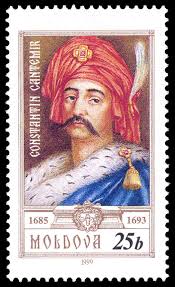Understanding Moldova’s Political Landscape in 2023

Introduction
Moldova, a small Eastern European country, has been in the spotlight recently due to its efforts towards European integration amid internal challenges. The significance of Moldova lies not only in its geographic location between Romania and Ukraine but also in its political and cultural ties to both East and West. As the country continues to grapple with the remnants of a turbulent past and the desire for modernization, understanding its current political landscape is essential for grasping the region’s future dynamics.
Current Political Dynamics
As of 2023, Moldova is navigating a complex political environment marked by a struggle for power between pro-EU and pro-Russian factions. The ruling party, the Action and Solidarity Party (PAS), led by President Maia Sandu, advocates for closer ties with the European Union. This government is facing significant pressure to implement reforms, combat corruption, and improve living standards.
In recent months, Moldova has witnessed protests demonstrating public frustration over rising energy prices and economic hardships compounded by the ongoing war in Ukraine. The influx of refugees from Ukraine has also tested the nation’s resources and resilience. According to the United Nations High Commissioner for Refugees (UNHCR), Moldova has welcomed over 500,000 Ukrainian refugees since the onset of the conflict.
International Relations and European Integration
Moldova has applied for EU membership and has been granted candidate status, which marks a significant step toward its integration into European structures. However, the road ahead is fraught with challenges such as the need for judicial reforms, law enforcement improvements, and the necessity to address ongoing corruption.
Dialogue with the European Union remains a top priority for the Moldovan government. Recently, EU officials have expressed their willingness to assist in the reform process while emphasizing the need for stability in the region. Furthermore, Moldova’s relationship with Russia remains contentious, particularly regarding energy dependency and the breakaway region of Transnistria, a pro-Russian separatist area.
Conclusion
As Moldova stands at the crossroads of European integration and regional influence, its future will be significantly shaped by domestic and international developments. The government’s ability to address public discontent, drive economic reforms, and maintain a balance in its foreign relations will be critical. The significance of Moldova extends beyond its borders as its political stability could have broader implications for regional security and European unity. Moving forward, the perseverance of its citizens and the strategic decisions made by its leaders will determine the trajectory of this evolving nation.


